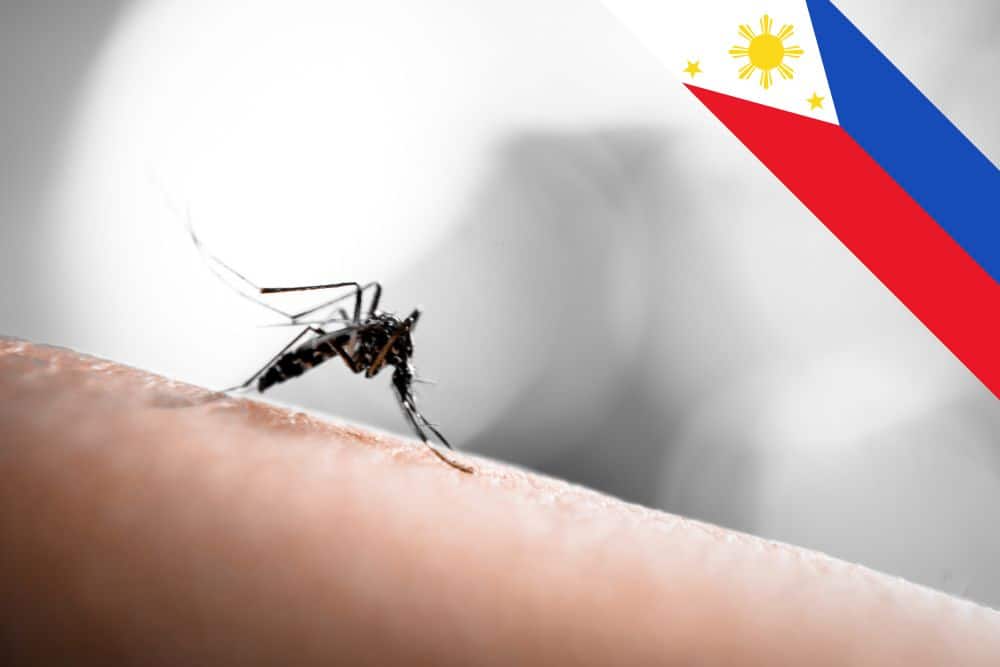In a concerning development, malaria cases in the Philippines nearly doubled in 2023 compared to the previous year. Climate change has emerged as a significant contributing factor, according to the Department of Health (DOH).
Alarming Statistics Due to Doubling Malaria Cases
Data from the DOH Research Institute for Tropical Medicine (RITM) revealed a stark increase in malaria cases. 6,248 cases were recorded in 2023. This figure represents a staggering 90 percent surge from the 3,245 cases reported in 2022. Amidst this rise, the country also mourns 11 deaths attributed to malaria, with investigations ongoing.
Climate Change and Pandemic Restrictions
DOH Disease Intervention and Prevention Bureau medical officer Kim Patrick Tejano emphasised that while various factors contribute to the spike, climate change stands out as a significant driver. Tejano highlighted the impact of altered rainfall patterns. He cited instances in Palawan where early typhoons created conducive breeding environments for the Anopheles mosquito, the malaria vector.
Additionally, the lifting of pandemic restrictions played a role in the upsurge. Tejano noted that eased restrictions granted access to areas with active malaria transmission, potentially exposing more individuals to the disease. Currently, an alarming 684,735 individuals nationwide are at risk of malaria transmission.
Palawan’s Struggle with Malaria
Among the 82 provinces, Palawan stands out as the sole province with active malaria cases, reporting 6,188 cases in the previous year. The City of Puerto Princesa remains a focal point for malaria transmission within the province. Despite progress in other regions, Palawan’s persistent malaria burden underscores the need for targeted interventions and sustained efforts.
Symptoms and Global Impact
Malaria, caused by Plasmodium parasites transmitted through mosquito bites, presents with symptoms like fever and chills, recurring every few days. Despite being preventable and treatable, it remains a significant global health challenge. There were 249 million cases and 608,000 deaths reported in 2022, primarily affecting 29 countries, including the Philippines. This underscores the urgent need for sustained efforts in prevention, diagnosis, and treatment.
Addressing malaria requires intensified mosquito control, ensuring access to quality antimalarial drugs, and strengthening healthcare systems for prompt diagnosis and treatment. Community engagement and awareness campaigns are crucial for promoting preventive measures. While progress has been made, sustained political commitment and collaboration are essential to achieving malaria elimination goals set by the WHO. By working together, we can overcome the burden of malaria and secure a healthier future.
Focus on Prevention and Treatment
Recognising the severity of the situation, the DOH emphasises the importance of targeted testing and treatment for malaria, ensuring direct observation and supervision for effective parasite clearance. Additionally, the DOH provides essential tools for malaria prevention, including long-lasting insecticidal nets and materials for indoor residual spraying in affected areas.
Collaborative Efforts and Future Prospects
As the nation grapples with the resurgence of cases, urgent action is imperative to mitigate the impact and prevent further transmission. Addressing the intertwined factors of climate change, pandemic dynamics, and regional vulnerabilities requires a comprehensive approach.
Collaborative efforts between health authorities, communities, and stakeholders will be pivotal in formulating and implementing effective strategies. This includes enhancing surveillance systems to detect and respond to outbreaks swiftly, implementing community-based interventions, and strengthening health systems to ensure access to quality care.
Investing in research, innovation, and capacity-building will be crucial in achieving the vision of a malaria-free Philippines. By fostering partnerships, raising awareness, and mobilizing resources, the country can work towards a future where malaria no longer threatens public health and well-being. Together, we can pave the way for healthier communities and a brighter tomorrow.














